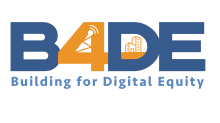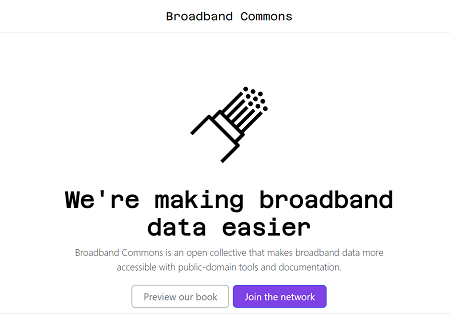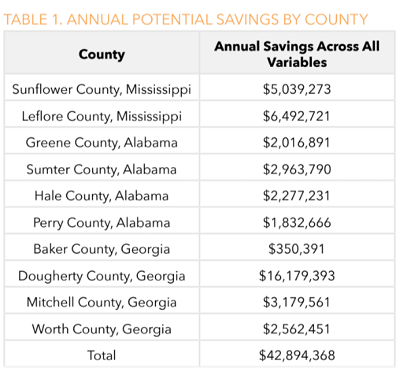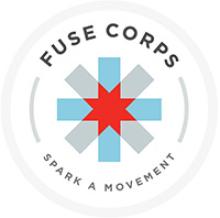
Fast, affordable Internet access for all.


Sean Gonsalves interviews Deb Socia, President and CEO of the Enterprise Center, about Chattanooga's remarkable municipal fiber network, which began offering free, high-speed service to thousands of low-income families during the pandemic under a program called HCS EdConnect. They go on to talk about one of Sean's favorite slogans, "If it isn't affordable, it isn't access." And finally, they discuss some advice for people newly joining digital equity work.
This show is 15 minutes long and can be played on this page or using the podcast app of your choice with this feed.
Transcript below.
We want your feedback and suggestions for the show-please e-mail us or leave a comment below.
Listen to other episodes here or see other podcasts from the Institute for Local Self-Reliance here.
Thanks to Joseph McDade for the music. The song is On the Verge and is used per his Free-Use terms.
Finding good data on broadband is hard to come by. But, it’s about to get a bit easier with a new online resource being developed by an informal group known as Broadband Commons.
Broadband Commons is a group of folks from very different backgrounds – nonprofit, industry, and academic – who work in the broadband and digital equity space and have a shared enthusiasm for making sense of messy broadband data.
Their primary mission is to make broadband data (e.g., FCC Broadband Availability data and more) accessible to all, both in terms of understanding and using the data.

Broadband Commons (ILSR’s Community Broadband Networks Initiative counts itself as a member) is excited to share a peek into the development of their guidebook: Introducing Broadband Data. This book is intended to be the “missing manual” for broadband data users — how to find the data you need, how to wield it to answer your research questions, common gotchas to look out for, and how to share your work back with the community.
They invite interested folks to share any feedback you might have as this guidebook develops – what else might be needed? If you're interested in contributing your expertise by writing a particular section, please head over to the Broadband Commons website to check out the book and sign up for an invite to the discord channel.
Updates about the project will also be posted on the website.
Header image of data graphic courtesy of www.epictop10.com on Flickr, Attribution 2.0 Generic (CC BY 2.0)
During the COVID-19 lockdown in 2020, organizations that had not previously focused on digital inclusion work scrambled to help their communities stay connected as school, healthcare, and other services transitioned online.
OCA-Asian Pacific American Advocates (OCA) was one of these organizations, and in advocating for the digital access needs of Asian Americans, Native Hawaiians, and Pacific Islanders (AANHPIs), found that there was not much data documenting connectivity gaps within these communities. The "model minority" myth, which characterizes AANHPIs as one monolithic group, enjoying “uniform high achievement and high income, [and] relatively untouched by racial and ethnic discrimination,” obscures the digital access gaps in many AANHPI communities and has likely contributed to the dearth of research investigating AANHPI connectivity needs.
OCA Broadband Access and Digital Equity Fellow Yen Jeong told ILSR how difficult it has been to challenge the model minority myth: “Every time we say that our communities need more [digital access] support, everyone says that Asian Americans are digitally already very fluent,” Jeong said, adding that the assumption that many AANHPIs have tech jobs makes it especially difficult for OCA to galvanize support for the AANHPI-focused digital inclusion work.
"It’s been really tough to challenge the narrative."
The assumption that all AANHPIs are connected to the Internet, along with the lack of evidence to break down this assumption, impeded OCA’s efforts to rally support for AANHPIs’ digital access needs, made urgent by the pandemic. Motivated to get all AANHPIs online, OCA launched a major data collection campaign to challenge the model minority narrative and build the foundation for its newest area of advocacy – technology, workforce, and digital inclusion.
OCA’s Entry to Digital Inclusion
Two months after President Biden’s belated and long-stalled Federal Communications Commission (FCC) nominee withdrew her nomination after a year-long attack campaign against her, today at the Broadband Communities Summit in Houston, Texas, Gigi Sohn announced her next move: Sohn will serve as the first Executive Director for the American Association of Public Broadband (AAPB).
A non-profit organization formed by a group of municipal officials, AAPB’s mission is to advance advocacy efforts on behalf of publicly-owned, locally-controlled broadband networks. Since the organization first announced its formation at the Broadband Communities Summit in May of 2022, it has been working to educate federal and state policymakers who “have turned to the telecom lobby for help and are receiving biased guidance” on the community broadband networks approach, just as $42.5 billion from the Infrastructure Investment and Jobs Act (IIJA) is set to flow to state governments to expand high-speed Internet access this summer.
During a keynote luncheon at the summit, Sohn was joined by AAPB founding board members Bob Knight and Kimberly McKinley on the main stage for a candid discussion in which she reflected on the state of Internet access in the U.S. and her experience that led to her to withdraw her nomination to the FCC. Near the end of the luncheon she announced her new role with AAPB, which was greeted by a standing ovation from the hundreds of attendees in the audience.
Freedom to Choose Community Broadband Future
The announcement was followed by a press briefing where she elaborated on her vision for AAPB.
“I will be the first Executive Director of the American Association of Public Broadband. Until now, there has not been a membership-based advocacy organization that works to ensure that public broadband can grow unimpeded by anti-competitive barriers. That’s despite the success of public broadband to help places like Chattanooga and the Massachusetts Berkshires transform from sleepy hamlets to vibrant centers of economic opportunity, education and culture,” she said at the press briefing.
In partnership with the Southern Rural Black Women’s Initiative (SRBWI), today ILSR is releasing a new report that examines the link between high-speed Internet infrastructure, access to healthcare, and the economic implications involved.
The report – “Increased Wellness and Economic Return of Universal Broadband Infrastructure: A Telehealth Case Study of Ten Southern Rural Counties” – has particular relevance for those living in rural broadband deserts as it details how universal, affordable, broadband infrastructure would return $43 million per year using telehealth across 10 counties in the Black Belt of Alabama, Georgia, and Mississippi.
At a virtual press briefing today, SRBWI leaders and organizers were joined by Dr. Sandra B. Reed of Emory Healthcare; as well as ILSR Senior Researcher and the report’s lead author, Ry Marcattilio, to explain how robust broadband infrastructure could pay for itself in short order and open up untold access to healthcare, educational opportunities, economic development, community engagement, and other benefits along the way.

“It’s easy to miss the connection, but hard to overlook what’s at stake as rural hospitals close and the cost of transportation to get to far-off healthcare facilities presents a real barrier. This is about access to healthcare and Black women being denied the opportunity to take advantage of telehealth. The broadband infrastructure that’s needed for that just isn’t there,” said Shirley Sherrod, SRBWI State Lead for Georgia and Director of the Southwest Georgia Project in Albany Georgia.
Broadband … to Access Longer, Healthier Lives

Sean Gonsalves speaks with Dwight Thomas, who build the first citywide municipal fiber network in Texas in Mont Belvieu. They talk about Mont Belvieu as well as the importance of engaging the community and how to make sure people can use the network once it is built. Dwight also discusses his passion for discipleship and sharing his knowledge.
This show is 19 minutes long and can be played on this page or using the podcast app of your choice with this feed.
Transcript below.
We want your feedback and suggestions for the show-please e-mail us or leave a comment below.
Listen to other episodes here or see other podcasts from the Institute for Local Self-Reliance here.
Thanks to Joseph McDade for the music. The song is On the Verge and is used per his Free-Use terms.
On the latest episode of our Building For Digital Equity podcast, we are joined by Aneta Lee, a FUSE Corps Fellow working with the city of Birmingham, Alabama to strategize and conceptualize around the city’s role in closing the digital divide in Magic City.
Aneta shares with us how she came to work with the city and some of the initiatives that have been launched to advance digital equity. She also speaks about the city’s work with Education SuperHighway on an Affordable Connectivity Program (ACP) outreach campaign known as Connect 99.
Lastly, Aneta talks about her willingness to work with other communities to help craft their digital equity plans.
This show is 15 minutes long and can be played on this page or using the podcast app of your choice with this feed.
Listen to other episodes here or see other podcasts from the Institute for Local Self-Reliance here.
As communities across the country are implementing digital equity plans and looking to expand access to high-speed Internet connectivity, the second Building for Digital Equity event (#B4DE) of the year comes weeks ahead of when states will receive their BEAD funds from the bipartisan infrastructure bill.
Save the date and join us June 7 at 3 pm ET for #B4DE! As with previous B4DE events, this will be another virtual gathering that will offer up strategies to help simplify the complexities (and opportunities) of broadband connectivity. This event, sponsored again by UTOPIA Fiber, will focus on ways communities can foster meaningful action and advocacy.
Fresh off their most successful Net Inclusion gathering ever, the National Digital Inclusion Alliance (NDIA) will join ILSR’s Community Broadband Networks (CBN) team for the event as NDIA’s Pamela Rosales will co-host the livestream along with CBN Director Christopher Mitchell.
The 75-minute free event promises to be informative and include a series of fun interactive games. It will also debut a point-counterpoint component that will focus on the pending release of BEAD dollars for both rural and urban areas and the challenges around mapping as states try to determine how to get the biggest bang for the buck.
Register now for the Building for Building for Digital Equity Event.
See our previous B4DE livestreams below:

At the time of this interview at Net Inclusion, Aneta Lee was wrapping up her FUSE Corps Fellowship with the city of Birmingham in Alabama. We talk about the FUSE Corps Fellowship and her time at the city of Birmingham. Aneta discusses the ACP outreach campaign she put together and where she sees her future taking her - HINT, it could be to your community if you act fast!
This show is 15 minutes long and can be played on this page or using the podcast app of your choice with this feed.
Transcript below.
We want your feedback and suggestions for the show-please e-mail us or leave a comment below.
Listen to other episodes here or see other podcasts from the Institute for Local Self-Reliance here.
Thanks to Joseph McDade for the music. The song is On the Verge and is used per his Free-Use terms.
This week we are giving you a double dose of our new Building For Digital Equity podcast. In Episode 4, our research associate Emma Gautier interviews Kim Ilinon and Ella Silvas, two Interactive Media Design students from the University of Washington-Bothell.
Kim and Ella, who both gave lightning round presentations at Net Inclusion 2023 in San Antonio last month, discuss how they got into digital equity from a design background and what they have learned about who is doing digital equity work in Washington state.
You can watch their 3 minute lightning talk here:
And you can listen to the 12-minute long B4DE podcast with Kim and Ella here:
Also available is Episode 5 of the B4DE podcast, which features Susan Corbett, Executive Director of the National Digital Equity Center, an organization that has long been involved in policy around Internet access and digital equity both in Maine and across the United States.
ILSR’s Community Broadband Networks Director Christopher Mitchell discusses with Susan how she got started doing digital equity work in 2005 as the owner of a small ISP in rural Maine. They also explore how the National Digital Equity Center uses a database and surveys to track the progress of their programs to ensure they are effective, having launched initiatives around distributed devices, skill building, and now involved with the Maine Digital Equity Plan.
That episode is 14 minutes long, which you can tune into here: